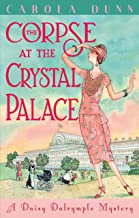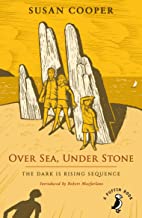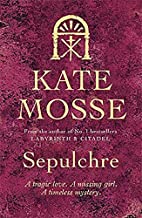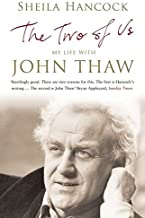Books That Saved My Life
- lotenwriting
- Feb 25, 2020
- 4 min read
In the car today I started listening to a programme on Radio 4 where listeners were calling in to talk about which books had helped them through life when times had been difficult for them. The Bible obviously made an appearance, but other works such as Wuthering Heights, Pilgrim's Progress, The Lord of The Rings and The Philosophy and Opinions of Marcus Garvey, were also mentioned. It got me pondering the books I'd read and although I couldn't think of any one specific book, it did make me realise that I've always used books as a kind of escape from real life. No matter how bad things were, knowing that I always had a route out into another world made life easier to deal with.

Last year, when I was researching a piece that touched on anorexia, I read a book called The Reading Cure: How Books Restored My Appetite by Laura Freeman. In it, she writes about her battle with anorexia and how reading about food in books, then graduating to reading cookery books helped her to no longer see food as her enemy and to slowly develop a better relationship with it. Although it was a fascinating read and I could relate to her struggles with anorexia, I found it more difficult to relate the two, possibly as it wasn't the way I'd dealt with my own issues with food.
Author, Matt Haig, who has been open about his own struggles with mental health says, 'I think books can save us and I think they sort of saved me.' This is a view that I empathise more with. In my teenage years, I never quite felt that I fitted in at my school. In a highly academic environment, I was average and my confidence in my own abilities took a huge knock. In a bid to fit in with my group of friends, who were all reading 'classic' literature, I started working my way through Austen, Bronte, Hardy, Dickens, Lawrence etc. Some I hated, but some I adored. Even though my motivation for reading them may have been somewhat dubious, there were books I developed a lifelong love for, books that got me through the emotional struggles of my teenage years and beyond. I was never particularly popular with boys and was definitely in the friend zone with all my male acquaintances and whilst this didn't exactly bother me, there was a definite longing for more romance in my life and books like Pride and Prejudice, Jane Eyre and Lady Chatterley's Lover allowed me to escape into a world where unexpected romances did happen and gave me hope that there would be some in mine at some point!
In a roundabout way, my refusal to read anything that wasn't 'classic literature' for a few years, actually did bring romance into my life. The summer before university applications I'd taken Persuasion and Much Ado About Nothing on holiday with me. At my interview for Durham University (which at that point was probably my preferred first choice) the interviewer asked me about my reading habits. Unable to accept that I actually enjoyed reading Shakespeare and considered Austen to be light reading (compared to the Joyce I was studying for A-level English Lit, it really was!), he kept returning to my reading habits and trying to get me to 'confess' that I read popular magazines and 'trashy' novels. I was so incensed that he appeared to be questioning my honesty that I left the interview in a furious mood and decided that I was going to put Exeter as my first choice instead. Fast forward a few months and I arrived at Exeter on the Sunday, met someone on the Monday and started dating him on the Thursday. We've now been together almost 23 years and celebrate our 18th wedding anniversary next month. Despite two children and over two decades together, he is probably more romantic now than when we met and in some ways I have the books to thank for that.

When I was at home after the birth of our second child, I started to feel as though I was losing myself a little bit, disappearing again into 'just' being a mother. At the same time, I couldn't cope mentally with reading anything too challenging and I sought refuge from the realities of sleepless nights and barely functioning days in books where I was familiar with the characters and didn't have to think too hard to read them. My favourites were variations of Pride and Prejudice. There was always a happy ever after, I didn't have to learn about new characters and the lives described in them were far more romantic than my reality of a husband who worked long hours far from home and an endless cycle of cleaning various bodily fluids from myself and a small child. Many of these books were not written very well, but there were a few authors such as Abigail Reynolds, Pamela Aidan and Linda Wells whose work I really enjoyed and I found myself breastfeeding in the early hours with my son in one arm and my Kindle in the other and the books got me through those early months.

Doing the Masters has meant that I have had to get myself out of the rut of 1920s female detective fiction that I'd got myself into. It was comfortable and I loved reading the exploits of Phryne Fisher, Daisy Dalrymple and Poppy Denby, but I needed to widen my reading experiences in order to get the best out of my writing.
Over the last eighteen months, I have read some phenomenal books that I would not have chosen to read without the influence of the Masters requirements, I've also had the opportunity to re-visit so many books that I've read before, but wanted to use extracts from for university exercises. My bookshelf has benefitted from this, even if my bank balance hasn't, although our local library service has been invaluable in helping to keep the costs down and recommending books on particular themes when I've been looking for them.
So, whilst no one particular book has helped me through difficult times, books in general have been at my side all my life, propping me up and giving me that 'me' time that we all need now and again in order to remain fully functioning human being and for that I will forever be grateful to the people who wrote them.


















Comments